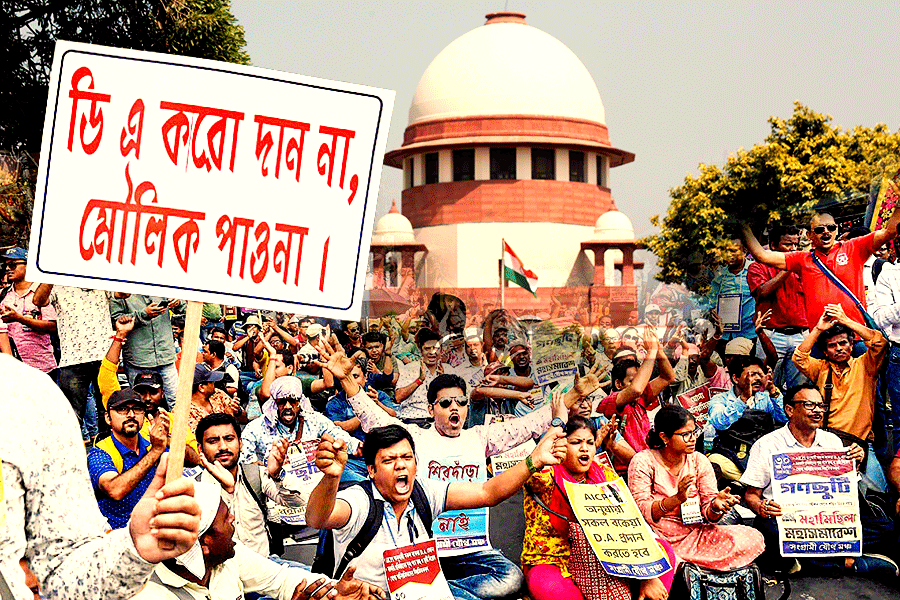|
|
| Bhowani Junction, 1956 |
Some years ago I spent two days and nights at Orchha in Madhya Pradesh. It is a small town with a fort-palace complex beside river Betwa and a market square with temples and small shops on the other side. It is redolent with the myth and legend of historic romances, the crystal clear Betwa running through jungles past Jhansi on its way to join the Yamuna. I am tempted to say if you haven’t seen Orchha you haven’t seen India.
On my way back I had a whole day to spend in Jhansi. All I knew about Jhansi was that Rani Lakshmibai who fought a losing battle against British rapacity, ruled over it for many years till the Sepoy Mutiny of 1857, which Pandit Nehru and other patriots called the First War of Independence. John Masters’ novel, Bhowani Junction, later made into a film, based his work of fiction in Jhansi.
There is little left of the palace in which Lakshmibai spent life after marriage, but the walls are intact. I was shown the spot on the ramparts from where she is said to have jumped on horseback to a mound below and escaped. It gave a splendid bird’s eye view of the cantonment and cluster of bazaars below. One look convinced me that the story of her escape could not be true: the fall from that height would have killed both rider and horse. I was eager to know how she had eluded the British encirclement to continue the fight for freedom and how she died. I turned to Jaishree Misra to read what she had to say about it in her recently published novel, Rani .
Jaishree Misra lives in London and works for the BBC. She researched material available in England and the National Archives in Delhi. She made several visits to Jhansi and Orchha to get a feel of these places. She takes liberties with historical facts and personalities and, by merging history with fiction, weaves a fascinating tale of the Rani’s life. She describes it as a romantic novel.
The story begins with Lakshmibai’s childhood in Benaras in the household of the exiled Peshwa. At 14 she is married off to the widowed Raja of Jhansi who is in his mid-forties. It is a happy marriage shorn of sex for over ten years. As her husband begins to turn senile, she takes over the administration of the state, holding court, training her troops and dealing with the British representative, Captain Robert Ellis, a handsome bachelor. She rides out every early morning and meets Ellis who comes from his cantonment. They fall in love. She bears her husband a son but the child dies after a few months. She adopts a boy and proclaims him the heir-apparent. Ellis has the unpleasant duty of informing her that the powers-that-be in Calcutta or London will not accept adoption and Jhansi, like many other princely states will be absorbed as British territory. Disgusted with the British hunger for empire-building, Ellis resigns his commission and returns to England.
The Sepoy Mutiny breaks out in 1857. It spreads across the Indo-Gangetic plain. Terrible atrocities take place in which women and children promised safety are instead butchered in cold blood. The British do worse by burning down whole villages, bayoneting men and women or hanging men at random.
These are the bare bones of Jaishree Misra’s Rani. She fleshes out her tale of tragedy with vivid descriptions of the countryside, and makes her narrative highly readable. Lakshmibai did not jump from the ramparts of her fort on horseback but found her way out through a subterranean passage. She fell in battle sword in hand. Rani is excellent material for a Bollywood film.
All for love
In 1563 AD, Cesare Federici left his native Venice “very desirous to see East parts of the world”. Four years later he arrived in Vijayanagar. He spent three years in India, mainly in Portuguese-possessed Goa and the coastal towns of Mangalore and Cochin. Besides noting the lawlessness of gangs of robbers he gave a vivid account of sati. He writes: “When there is any noble man or woman dead, they burn their bodies, and if a married man dies, his wife must burn herself alive for the love of her husband and with the body of her husband. As in other parts of India where this savage custom prevailed, the widow decked herself in bridal attire and was taken in procession to the husband’s funeral pyre. And when dieth any great man, his wife and his slaves with whom he hath carried copulation burn themselves together with him.”
(From Beyond the Three Seas, edited by M.H. Fisher)











